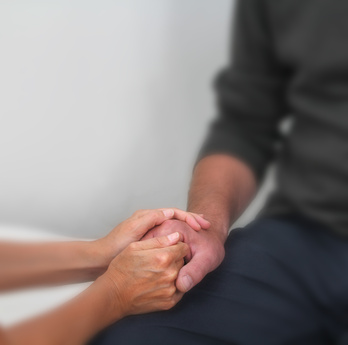Published on: August 18, 2015

If you happen to suffer from clinical depression, there are a lot of questions that you may have: how to cope with the illness, treatment options, even the side effects from the drugs that you might be prescribed to help. One of the things you might not want to think about is your professional life.
While some people are more than able to function and work while they’re suffering, many are unable to work. Perhaps you feel unable to work due to the severity of the feelings and the lack of drive, or perhaps the information that you’re being given is just going through your mind without really finding a place to stick.
If you’re in that predicament, perhaps you’ve questioned whether or not you can receive Social Security Disability Insurance (SSDI) benefits for your ailment. You might feel that you are unable to do the work so long as you’re feeling this way, and you don’t know how you’re going to pay the bills while you’re feeling this way (which might feed into how you’re feeling, too—a terrible cycle to have to deal with). The answer to that question is not simple, but there is some hope: depending on the severity of your depression, you might qualify for SSDI benefits.
How SSDI Works
The Social Security Administration runs SSDI and it provides assistance to those who cannot work due to a medical condition. Luckily for you, mental disabilities are medical conditions just as much as physical disabilities. This is good news: if a doctor agrees with you in how you feel about your depression, you are potentially entitled to receive SSDI benefits. However, you must meet the standards that the SSA sets to be considered and they consider your disability on a case-by-case basis.
The SSA has two specific criteria that they evaluate in giving benefits: the recent work test and the duration of work test. The nitty-gritty details are all available on the SSA website, but generally the test is that you’ve worked for at least half of the period considered before you apply. For instance, if you apply for benefits when you turn 31, you must have worked for five years out of the ten between 21 and 31. If you apply when you’re 24, you must have worked for one and a half years out of the three between 21 (the earliest age they consider) and your current age. There is also the duration of work test, which is far simpler: they set an amount of years you must have worked (total, not in a certain period). The table is also available on the SSA website.
Dealing with Depression
There are multiple forms of the illness, but the two that most are familiar with is Recurrent Major Depressive Episodes and Bipolar Disorder. Both of these (if severe enough) qualify someone for disability as the diagnosis manual discusses their affects on the mind and how they can disable someone from working. Often, the medication to treat depression is not much better than the illness itself. It doesn’t always apply, but if you feel it’s severe enough, the option is most definitely out there.
Regardless of any other consideration, if you’re just feeling blue, then disability might not be for you. However, if you’re dealing with recurrent depressive episodes that are severe enough to limit your ability to focus or have been diagnosed with bipolar disorder, then you might consider filing for disability. It’s not only a good option if you’re feeling like it won’t end, but it might help assuage at least one of the worries on your mind. Don’t worry yourself too much about justifying your illness to anyone; the doctors are trained to see these things and they’re there to help. Just go and do what’s best for you.

